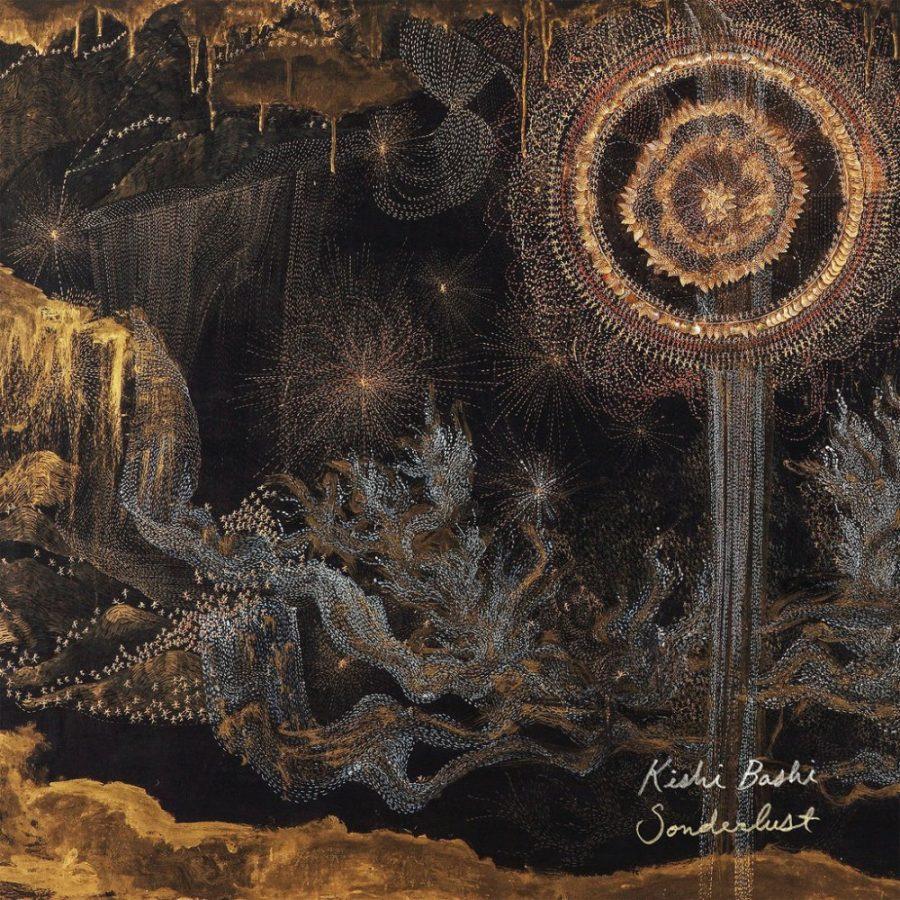Way back when, some caveman took time off from hunting and wrote the first-ever song. It was likely a prehistoric love ballad.
Music and love go hand in hand, and the natural response to falling in (or out) of love is to express the joy and sorrow musically. To love is to be human, and good music illuminates that practice. With his third LP Sonderlust, indie pop artist Kishi Bashi, whose real name is Kaoru Ishibashi, shines a light on the classic subject of a love gained, lost and found once more.
Given the over-saturation of love songs, Sonderlust offers a refreshing look at relationships under the songwriting microscope. As the album progresses track by track, a story unfolds of two lovers—from the elation of a blossoming relationship (“m’lover”), to a heartbreaking separation (“Say Yeah”) and the soul-searching that’s induced by heartbreak before an eventual reconciliation (“Honeybody”).
It doesn’t take a detective to draw autobiographical parallels between this story and Kishi Bashi himself, who has described Sonderlust as an album “forged through heartbreak.” The heartbreak stems from a period of separation in his marriage of 13 years, an experience that called into question all Ishibashi knew about love.
“This album is straight from my soul. I questioned everything about what it means to love and desire—the difference between loving someone and being in love,” Ishibashi said in a press release.
RELATED: ’Wild World’ solidifies Bastille’s presence in rock music
It would be remiss to not touch on the name of the album, which comes from the invented word “sonder” as part of writer John Koenig’s project “The Dictionary of Obscure Sorrows,” which creates words that capture ineffable human experiences.
Sonder is defined by Koenig as “the realization that each random passerby is living a life as vivid and complex as your own.” Sonderlust, by extension, would be the search for this realization—to connect with those random passersby and the complexity that results from two human lives colliding.
It’s the tragic desire for and impossibility of this connection that powers Sonderlust, manifesting itself in each of the album’s 10 tracks. The lead track “m’lover” simultaneously captures the elation of falling in love while planting the seeds for a relationship that will have to one day face reality.
Lyrics like “Could you be her / Would you feel together and inebriated / Enabling every fable we were never meant to be but together” exhibit this truth. Underneath the lyrics, the hallmarks of the Kishi Bashi sound run in the track’s blood: an upbeat rhythm, cascading violin strings and a tone reminiscent of a room filled to the brim with party balloons.
It’s the dissonance between that bubblegum “poptimism” and the devastating heartbreak that make Sonderlust Kishi Bashi’s best album to date.
The sweetness of the baroque pop flute solo in “Say Yeah” distracts from the tragic lyrics, “If I really love you / I’ll be waiting for you / That I really want you too / Say yeah.”
It’s a musical magic trick; the sound distracts while the lyrics slowly slip a knife between the listener’s ribs, directly into their heart.
This occurs many times throughout the album, such as in “Why Don’t You Answer Me.” The swelling orchestral sound drops out to leave just the singer and an acoustic strum, where he makes an allusion to the couple’s child with the line, “Hey! Before there was three / there was one / the loneliest of all the numbers.” There is an emotional sucker punch disguised behind Kishi Bashi’s upbeat pop sound.
Sonderlust offers the most “colorful” Kishi Bashi LP to date, with many songs building a soundscape akin to a ride in a washing machine with a sci-fi-themed kaleidoscope for company.
RELATED: Frank Ocean goes Blond
Funky sounds abound, and with Ishibashi’s composing roots, they always feel larger than life, particularly in the film score-like track “Ode to My Next Life.” Despite the zany sounds, the album also marks a departure from the thickly layered sounds that populate previous albums 151a and Lighght.
Kishi Bashi separates from the pack of traditional love ballads with Sonderlust, largely as a result of the raw honesty and heartbreak at the center of the album. While the album does boast a stronger first half than second, a problem present in previous albums, the songwriting and top-notch production quality make this album Ishibashi’s most mature effort.
The album does have a happy ending with the upbeat “Honeybody,” a high point of the album both thematically and musically. The song, much like Sonderlust as a whole, offers a refreshing take on love: We are too complex of beings to live out a fairy tale romance. Love is hard, people are complex and life collides between the two.
Real love isn’t simple, but it is beautiful.
Follow Alex Furrier on Twitter









